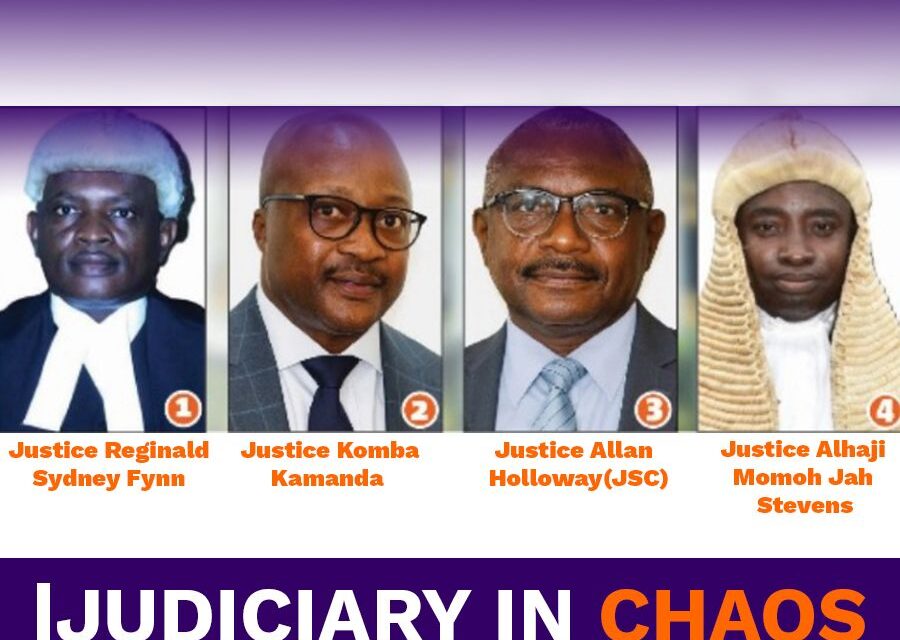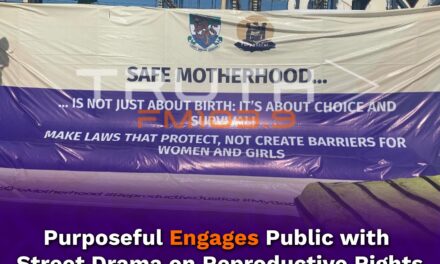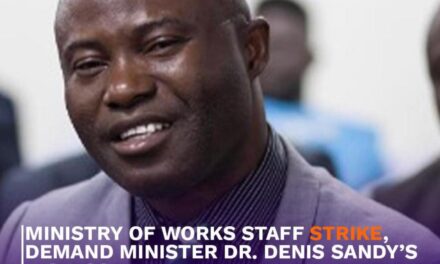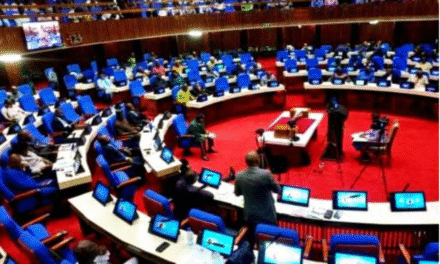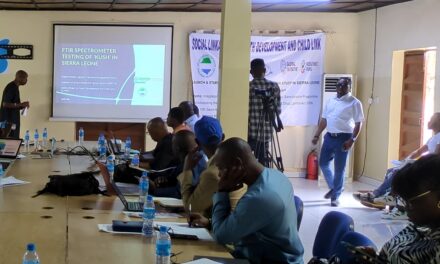Freetown, 29th September 2025-The judiciary, long regarded as the bedrock of justice and constitutional order, is now facing a wave of controversies that threaten to erode public trust and institutional credibility. From the suspension of a Supreme Court Justice to internal dissent within the Judicial and Legal Service Commission (JLSC), and a domestic violence case involving a senior judge, the legal establishment finds itself in turbulent waters.
Justice Halloway’s Suspension Sparks Constitutional Debate
On September 25, 2025, Supreme Court Justice Allan B. Halloway issued a scathing letter to the country’s Human Resource Management Office (HRMO) denouncing his suspension and the withholding of his salary as unconstitutional and a direct threat to judicial independence. The suspension, initiated by a letter from the Secretary to the President, bypassed what Halloway insists is a mandatory constitutional process.
“A tribunal must first be appointed before any suspension can lawfully be effected,” he wrote, citing Sections 137(5) and 137(6) of the 1991 Constitution. He further rejected the application of Civil Service Code provisions to his case, arguing that his office is governed solely by constitutional law.
At the heart of his protest is Section 138(3), which guarantees that a judge’s salary and conditions of service “shall not be varied to his disadvantage.” Halloway warned that unless the decision is reversed, he will pursue legal remedies through the Superior Courts of Judicature.
Reginald Fynn Breaks Ranks, Challenges JLSC’s Tribunal Referral
In a rare public dissent, senior JLSC member and Appeals Court Justice Reginald Sydney Fynn has written to President Julius Maada Bio, raising serious concerns over the Commission’s decision to refer Justice Halloway for tribunal investigation.
Fynn’s letter, outlines six major reservations, including the absence of a clear statement of misconduct and the lack of due process. “To date, I do not know with any certainty the stated misconduct on which the referral is predicated,” he wrote, noting that the evidence consisted largely of outdated newspaper clippings and reports.
He accused the Chief Justice of acting as both complainant and chair of the disciplinary meeting, violating the principle that “a man should not be judge and jury in his own cause.” Fynn also claimed he was denied the right to record his dissent, describing the meeting atmosphere as “a cloud of anger, wild accusations, and intolerance for dissent.”
“It was and still is my opinion that the Supreme Court Justices in full coram could resolve the issues between the Hon. CJ and Justice Halloway,” Fynn stated, urging for a more transparent and respectful judicial process.
Domestic Violence Charges Rock Judiciary’s Public Image
Adding to the turmoil, a domestic violence case involving Appeals Court Judge Alhaji Momoh Jah Stevens has further shaken public confidence. The judge has filed charges against 21-year-old law student Edwina Hawa Jamiru, who previously accused him of impregnating and abandoning her.
Jamiru who is a student of the learned judge now faces three counts of physical abuse and intimidation under the Domestic Violence Act of 2007. The alleged incident occurred on August 27 at Kowa Drive in Regent, Freetown, within the context of a domestic relationship.
This legal battle follows a viral video Jamiru released in December 2024, in which she claimed, “We were lovers… He told me he never loved me and only used me to satisfy his sexual desires.” She expressed deep disappointment, saying that as an aspiring lawyer, she had once viewed the judiciary as a “symbol of hope.”
A System Under Scrutiny
These events have cast a long shadow over Sierra Leone’s judiciary, raising urgent questions about transparency, accountability, and ethical leadership. Public perception is that the cumulative effect of these controversies could undermine public faith in the rule of law.
As the nation watches closely, the judiciary must now reckon with its internal fractures and restore the integrity of an institution that serves as the final guardian of justice. The coming weeks may prove decisive, not just for the individuals involved, but for the future of Sierra Leone’s legal system.
